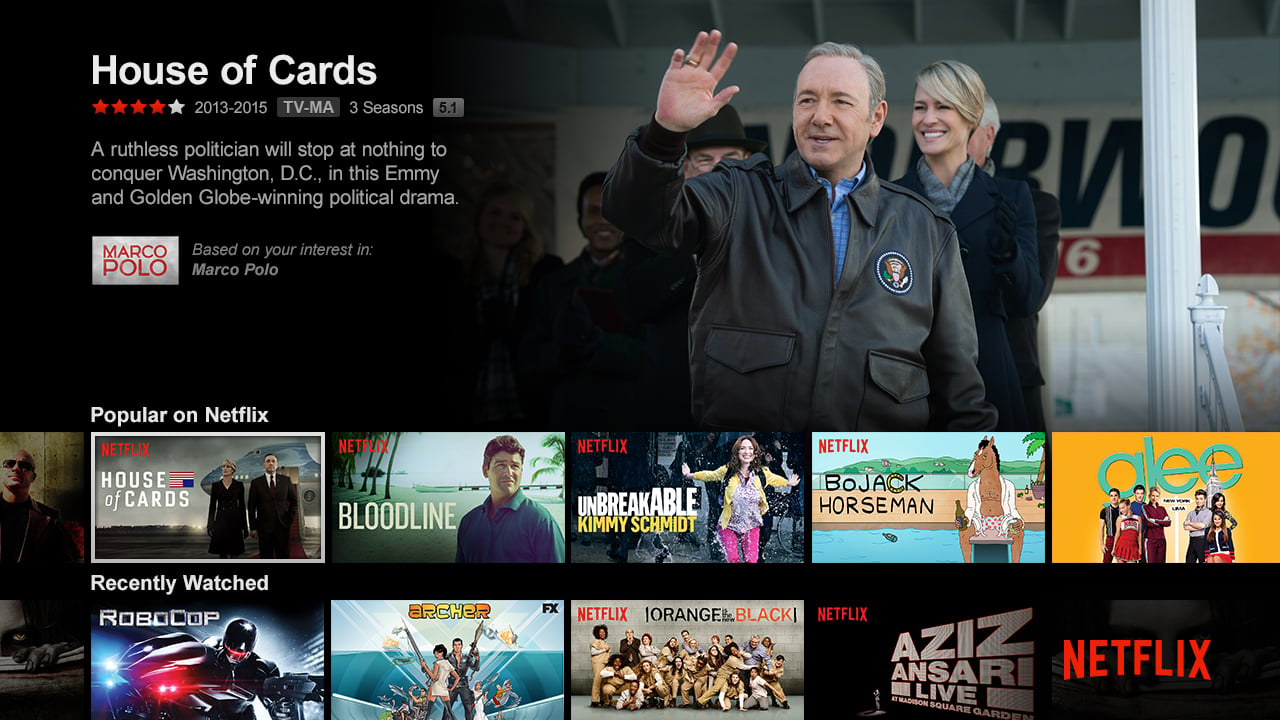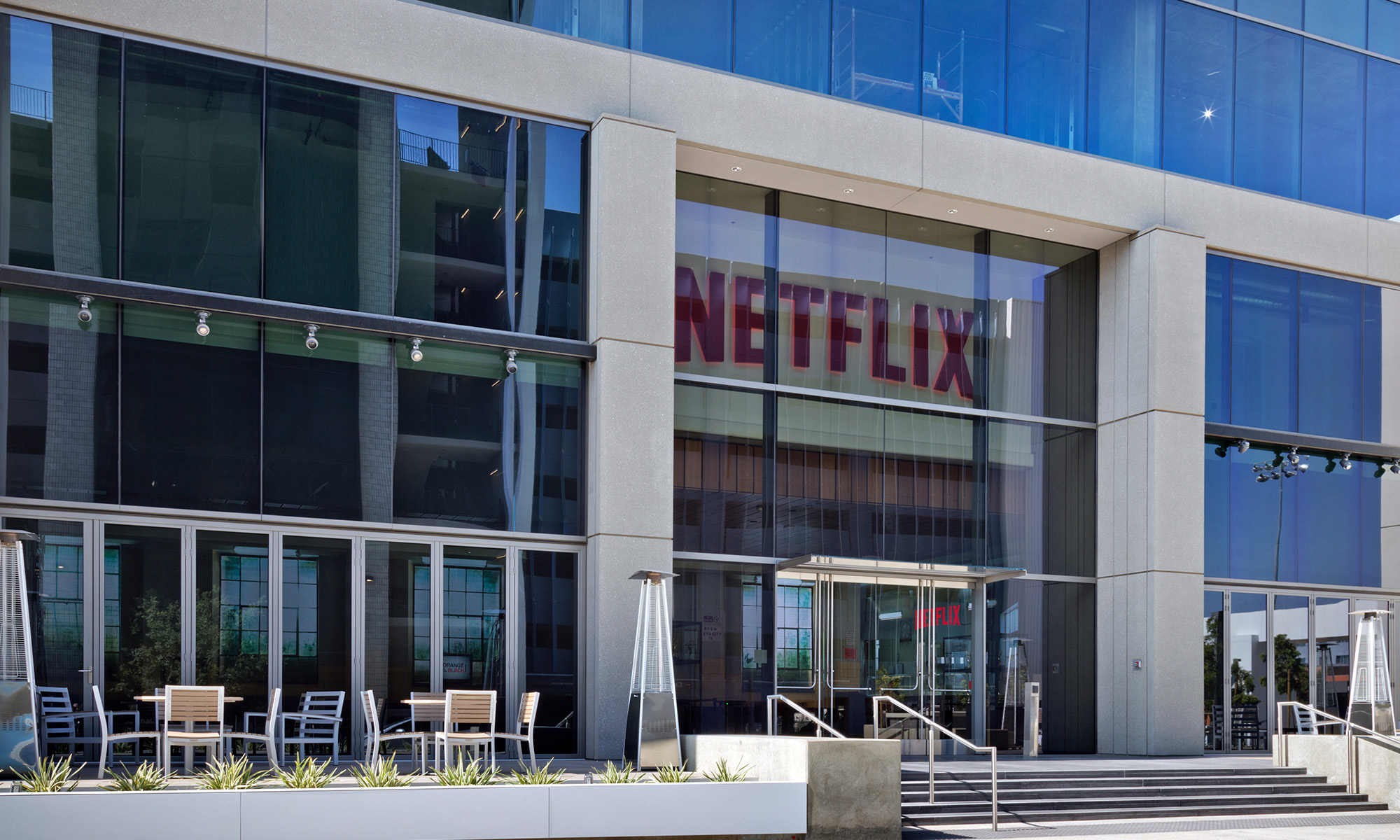
Netflix has been focused heavily on its originals. Image source: Netflix
As Netflix (NFLX 1.75%) expands its reach globally, it's running up a huge content-licensing bill. Its newest strategy will help alleviate some of the costs as Netflix launches in 150 new countries over the next two years.
CEO Reed Hastings says Netflix will start taking on ownership and production of its original shows. Previously, Netflix acquired exclusive streaming rights for its originals like House of Cards, but home video and international broadcast rights were often left with the production companies. That's why when Netflix expanded to New Zealand earlier this year, House of Cards didn't come with it.
The move echoes HBO's strategy with original content, which its parent company Time Warner (TWX +0.00%) has used to maximize the profits of its hit shows. Netflix' s taking ownership of its originals could provide an equally profitable asset, albeit with a different strategy than HBO. Take note, however, that ownership carries more risk than licensing content.
Increasing the original content budget
Producing a television series from scratch carries a much higher upfront cost than simply licensing the content. Wedbush Morgan Securities analyst Michael Pachter, according to a Bloomberg article, says the costs are about double the licensing fees Netflix currently pays.
Meanwhile, Netflix's original content budget is already starting to balloon. After spending an estimated $300 million in 2013, fellow Fool Anders Bylund believes its original content budget more than likely increased last year with the addition of the ultraexpensive Marco Polo. In Reed Hastings' letter to shareholders at the end of 2014, he noted that Netflix will continue to grow the percentage of its content spending dedicated to originals.
In his letter to shareholders last quarter, Hastings said that a larger portion of the company's content costs will be absorbed by the company's international expansion costs as it acquires global licenses for its originals and other content. This accounting will provide a nice boost to Netflix's domestic streaming contribution margin, but it doesn't reduce the actual costs of content.
Still, Netflix says original content is some of its most efficient in terms of cost per hour streamed. As such, it makes sense for Netflix to take on more risk with its originals in order to maximize their impact on the streaming service.
Real Netflix exclusives
While HBO owns its original content, it doesn't keep the shows all to itself. In fact, HBO's international business comes largely from licensing its brand and content to other distributors who take care of the hard work. While this provides less revenue per international subscriber, of which it has more than 60 million, it's extremely profitable for HBO. Meanwhile, it's able to sell DVDs and streaming licenses in the U.S and select international regions to nonsubscribers. Last year, HBO's home video and streaming business accounted for approximately 18% of revenue.
Netflix plans to take a much different approach. Instead of offering its originals on home video or to international broadcasters, it plans to keep its originals behind its paywall. That way the only way people can watch its new original programming will be through a subscription (or piracy, but that's a different story). Currently, you can buy DVDs of House of Cards and Netflix doesn't see a dime of that sale.
Netflix is banking that the originals it creates in the future will be as compelling as House of Cards, Orange Is the New Black, and Unbreakable Kimmy Schmidt. However, there's no guarantee that Netflix's in-house productions will succeed in the same way. With less experience than HBO in creating originals, Netflix is taking on a lot of risk.
The rewards, however, may be worth it. Netflix won't have to negotiate (and renegotiate) global streaming rights with production studios. Ownership also gives it a better hedge against production studios increasing prices for syndication of broadcast shows or refusing to license them to Netflix altogether.
HBO has shown that owning a strong catalog of original content with select licenses for films is enough to charge subscribers $15 a month. Netflix is taking another step toward becoming HBO.






